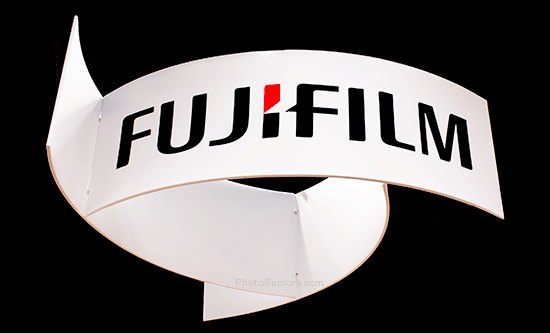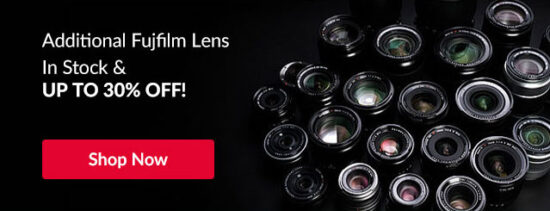
Image Resources published a new interview with Mr. Udono, Mr. Iida, and Mr. Toshi Iida from Fujifilm. Here is a recap of the lengthy interview from FujiAddict:
- Fujifilm’s supply chain has been restored and manufacturing is back to the usual since COVID-19
- There was a huge drop in sales due to COVID-19, but the market has been recovering and still feels like it is getting better
- Fujifilm thinks they outpaced the market’s recovery thanks to the X-T4
- Fujifilm X-T4 has very strong demand
- Fujifilm X100V also had stronger than expected demand
- “Customers buy cameras even under difficult situations if the products are unique and innovative.”
- Fujifilm doesn’t expect demand to fully return this year, but the holiday season should be good
- Fujifilm’s camera profits are still pretty good
- CIPA is predicting a 20% year over year drop in the industry, but Fujifilm thinks that it pessimistic
- Fujifilm thinks high-end cameras and mirrorless will be a small portion of that drop, which will mainly impact DSLR cameras
- The Fujifilm X-T3 continues to sell has strong demand
- The Fujifilm GFX100 is still selling better than expected
- Fujifilm did well-ignoring full-frame and focusing on GFX and APS-C cameras
- Fujifilm thinks the high-end full-frame market is limited to $3,000 to 5,000 and they are pursuing it with GFX
- Fujifilm wants full-frame photographers to upgrade to medium format
- GFX has lots of good AF and NonAF adapters for a variety of lenses
- 70-80% of photographers picking GFX are coming from non-Fujifilm camera systems
- Fujifilm thinks the number of switchers is staggering because they are dumping DSLR for GFX
- If you’re finally leaving DSLR than why not step up to a larger sensor in your mirrorless camera
- GFX50R photographers are shooting street while GFX100 photographers are doing Fashion, commercial, fashion portrait…
- GFX is also generating a lot of inquiries from B2B industrial-type customers for archiving at museums and libraries
- GFX100 outsells the GFX50R and GFX50S every month
- GFX100 Sales volume is 50% above expectations
- Fujifilm is working hard to catch up and keep up with the demand
- They think the attachment rate is 3 or more lenses, with GFX100 having the highest and GFX50R the lowest
- GFX has a higher attachment rate than X cameras
- Fujifilm thinks most are switching to GFX for the superior image quality over full frame
- Full frame photographers love the medium format look
- GFX50R and GFX50S design can use tweaking and there is a balance going on with size, weight, etc…
- GFX100 is the perfect GFX camera and it was made with no compromises which is why they made the camera bigger to include IBIS
- GFX100 customers want no-compromise quality that they can shoot handheld
- Comparing the X-T4 to X-H1 will help you understand what can be done with a few years of R&D
- AI will help with more than just AF in the future but they can’t talk about it now
- Fujifilm’s current processors aren’t fast enough for AI but future cameras will come with chips powerful enough
- Fujifilm doesn’t think 5G will be very useful beyond local stuff before consumer
- X cameras use IBIS and OIS combined, but GFX doesn’t need to combine the tech to reach peak stabilization
- Most image stabilization choices are made due to image circle limitations, which the GFX doesn’t have compared to X
- Fujifilm is transparent about how many stops each lens can provide because of the combined limitations
- The X-T4 IBIS (left) is 30% smaller and 20% lighter than the X-H1 IBIS (Right) unit because they removed the three coil springs and went magnetic in addition to improving other small details like the circuitry
- The Fujifilm X-T4’s IBIS unit is also 8x more accurate thanks to their new gyro sensor this provides more stops of IBIS (8x more detection accuracy of vibration than X-H1)
- The new IBIS allows for the correction of blur at even the edge of the image circle
- Three aspects improved the Fujifilm X-T4’s new shutter
- New Coreless DC motor with quicker starting/stopping and more torque
- Analyzed the X-T3 shutter and changed out any weak materials like the shutter material and plastics, which changed the way they filled molds to improve the strength of their glass fiber plastic
- The springs were improved to absorb shock by using new materials and different tension
- X-T4’s new shutter lasts twice as long and is one third the volume of the X-T3
- The new shutter also improves shutter shock
- Using springs to attach the shutter also greatly cut down on the sound of the new shutter
- It would be hard to fit the new IBIS unit from the X-T4 in the X-Pro4
- Fujifilm is still investigating and keeping their mind open about what to do with an X-H2
- After the launch of the X-T4 Fujifilm received a lot of interest asking for the X-T4 in a bigger body with the command dial etc…
- Fujifilm needs a breakthrough for X-H2 so it seems they like to introduce new features to their cameras via this product line
- There is a lot of internal debate at Fujifilm about how a camera should be held and what buttons are needed, which lead to the removal of the 4 controls on cameras that they might be accidentally pressed
- Fujifilm doesn’t think GFX photographers want as much glass as X mount
- Fujifilm keeps listening for more lenses to add
- Fujifilm dropped the XF33mm f/1.0 for the XF50mm f/1.0 due to size, but also they believe the 50mm f/1.0 has more beautiful Bokeh
- The X-Pro3’s flip-down screen further differentiates it from the X-T4
- They know the flip-down screen is 50/50 love or hate
- Customers that hate the flip-down screen went X-T4 and those that love it have no alternative option
- The Fujifilm X-T3 will be produced as long as people are buying it and the price will continue to fall
- The Fujifilm X-T4’s hybrid digital stabilization system likely won’t show up on other cameras as digital stabilization because it uses the gyro
Source: Image Resources, via FujiAddict








